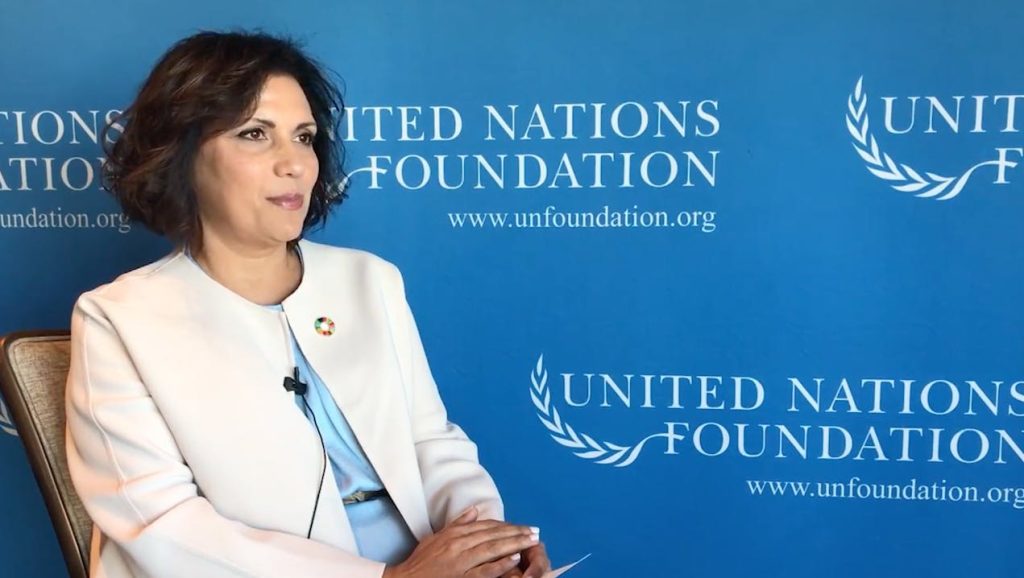As part of our “Americans in the UN” project to share the stories of Americans who work for the United Nations, we connected with Laila Baker, who is the UN Population Fund (UNFPA) Representative in Jordan.
Originally from Norfolk, Virginia, Baker holds a Master’s degree in Public Health from Cardiff University.
Watch the full interview:
Below please find excerpts from the interview, which have been edited for context and clarity.
What is your message to Americans about the importance of the UN?
Laila Baker: I’ve come to value the United States differently through my work with the UN.
It is the biggest, strongest, most influential nation, and that carries a lot of clout. It also carries a lot of responsibility. As an American in the UN system, I feel that a lot of people globally don’t have access to information other than the news and what they see in movies. That can create a very warped perception of the United States.
As an American in the UN, you can be the face of a different United States to many people who misunderstand what the U.S. represents. You can also show the glory of the United States – that it was an immigrant country, and that it’s been able to engage inclusively.
All of the principles of the UN are embodied in what the United States represents.
What motivates you to work for the United Nations?
LB: I’ve worked with three UN agencies to date. I knew I wanted to do something to make a difference in the lives of those who didn’t have a voice. And UNFPA, the agency I currently work for, is able to look at how women tend to be marginalized as a result of their reproductive health and reproductive rights.
From your experience, what is an example of how the UN has made a difference in someone’s life?
LB: One of the strongest examples that comes to mind is a 12-year-old girl I met in Homs, Syria. She had been under siege for 600 days and lost three years of schooling. And when the UN was able to facilitate the evacuation of civilians, I was the representative there and a member of the UN family.
This 12-year-old girl decided in the span of two weeks while working with the UN that she wanted to go back to school, she wanted to make up the three years, and she decided that she could also draw really well. She was going to tell her story through pictures until she could get strong enough to write. And for me, that was not only saving her, but saving a family, and saving her future family.
How did you first hear about the United Nations?
LB: When I was young, I was watching the news and saw a Security Council debate related to the Palestinian-Israeli conflict. I watched the debate carefully and was very interested in how politics could help forward a global solution to a big crisis and one that was affecting almost the entire world.
I didn’t know much about the UN, but I was intrigued by the idea that there was a body that wanted peace, that had the authority to do it, and that brought together a global community to dialogue around that.
On the work of UNFPA specifically, I think that women’s reproductive health and rights are central to any debate in development. You can’t skip half the world.
What is your favorite part of your job today?
LB: Meeting different people. The job allows me to be exposed to so many different people and speak to them – enter into their lives, even for a tiny bit. And it’s so diverse.
You get to meet people who are in a refugee camp, you get to feel what it’s like and that allows you not only to grow personally, but it also allows you to stay in touch with your own humanity.

